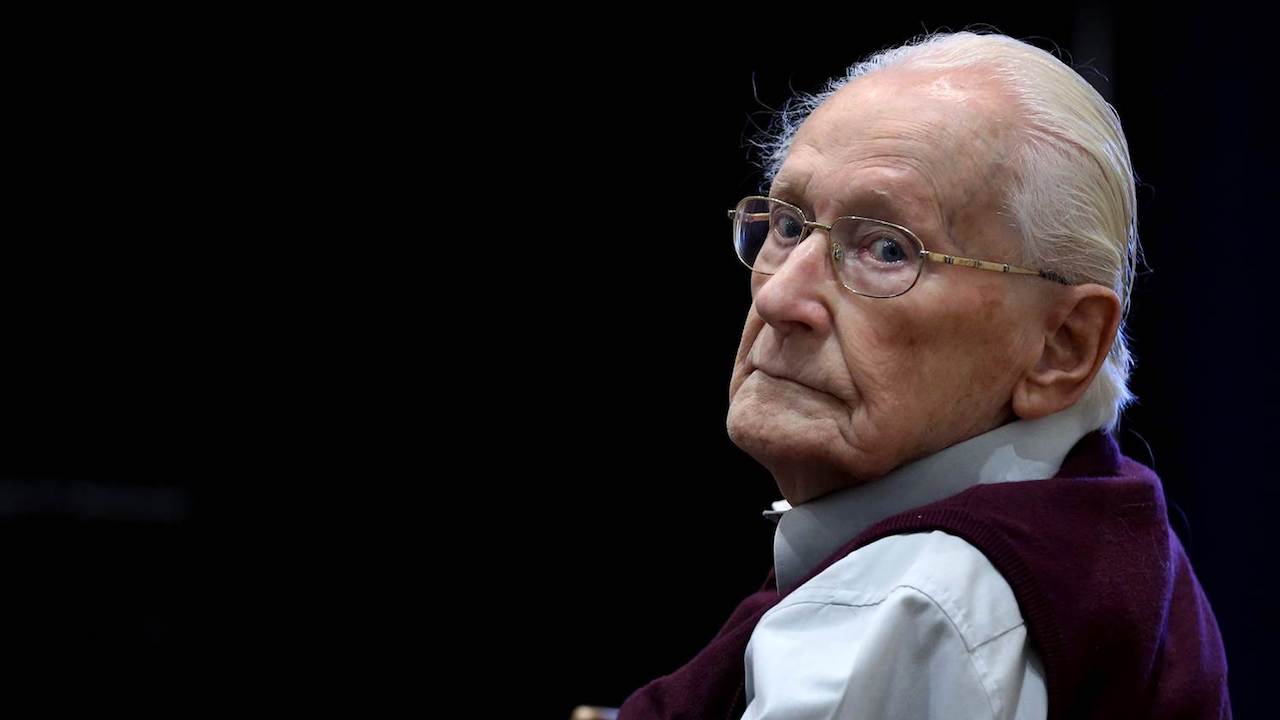Available on DVD and VoD from Mon 15 April
Arriving amidst the recent popularity in high-profile court-case documentaries, The Accountant of Auschwitz doesn’t need sensationalism or social media marketing to create impact. Stories from the Holocaust will always be harrowing and Matthew Shoychet’s film probes specific events that took place at the most prolific of the death camps, while also exploring ethical debates around justice and responsibility.
Powering straight into a collage of archive footage and audio excerpts, the documentary doesn’t immediately feel organised or framed particularly well. However, after ten minutes or so, the focus becomes clearer and the court case of Oskar Gröning is elucidated. At 94 years old, he was one of the oldest – and last – former SS officers to be tried for complicity in the murder of hundreds of thousands of Jewish people in 1944. Although officially he was employed as a “bookkeeper” at Auschwitz, his responsibilities extended far beyond numbers and officework. After Gröning steps into court for the first day of the trial, the film then diverts and digs into various historical strands connected to the story: interviews with Holocaust survivors; Gröning’s background; the Nuremberg trials; and a previous precedent-setting trial of John Demjanjuk, an SS guard who, in 2009, was found guilty of accessory to the murder of 27,000 Jews.
As various lawyers, historians and others involved in Gröning’s case are interviewed, the film’s scope is broadened beyond one specific example, and instead asks us to consider important ideas surrounding responsibility and criminal punishment – should someone still be held accountable for a law they broke 70 years previously? Where does culpability for genocide lie? Should those in their final stages of life be sentenced to prison terms? These questions are challenging and various perspectives and answers are presented in the film. However, whenever the focus returns to Gröning, his apparent ease is disturbing. In court, he seems to unashamedly admit to his activities at Auschwitz, retelling graphic details of horrific events almost flippantly. Clips of him in a 2005 BBC documentary – which ultimately prompted his prosecution – also showcase a contemptible sense of remorselessness.
The Accountant of Auschwitz ultimately climaxes in very moving and intimate moments with survivors Hedy Bohm, Max Eisen, and Bill Glied, who remind us of the devastating impact of what people like Gröning did, and of the importance of commemoration and memorial of the Holocaust. The film’s 75-minute running time is efficient but could definitely have been extended to develop some of this content in even further detail.
